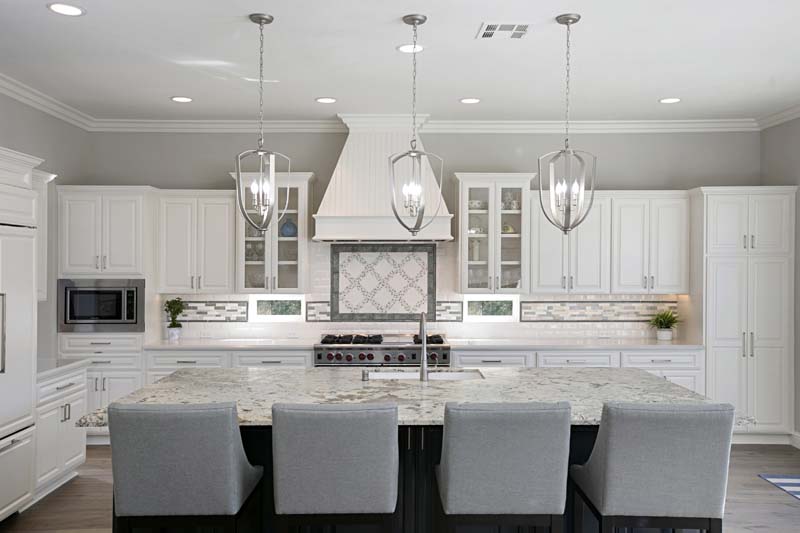1. Leaving important decisions until the last minute.
Sometimes it’s difficult to make up your mind about the backsplash tile that you want to be the wow factor in your kitchen, or maybe it’s the chandelier that you want to be a beautiful first impression in the foyer. You put off your decision, thinking you just need to sleep on it, but one night turns into two which turns into—suddenly, your builder needs a decision now or your project will be held up.
Sometimes you need the pressure to make up your mind, but picking out something last minute, whether it’s a tile or plumbing fixture, can lead to delays because you find out that the item you want is backordered by six weeks. Then you have to decide whether you settle for a more available second choice or deal with the delays. Making a decision under pressure can sometimes result in regret, which can lead to additional costs in time and money to fix.
What can you do to avoid this? If you are working with a designer, they should be able to guide you in your decisions and leave you feeling confident about them. Or, if your budget doesn’t allow for a designer, find a trusted family member or friend with an artistic eye to bounce ideas off of. Once you’ve made a decision, don’t revisit it constantly. If you’re going to doublecheck yourself, don’t think about it for a while and then review it with fresh eyes, but again, don’t wait until the last minute! Give yourself time to do this.
2. Cutting costs on important items.
With the internet these days, it is very easy to price shop, but the lowest price may not always result in less cost overall. For example, you find the faucet you want being sold the cheapest by a little known online retailer. You order it, thinking, what could go wrong? The faucet comes in the mail but it’s missing parts or a part is broken, and now you are trying to get ahold of someone to talk to and you end up with delays in getting replacements. While this case may also be possible with established brick-and-mortar retailers, they have a better, more convenient likelihood that the replacement parts are in stock, so you or your contractor can pick them up right away.
On a larger scale, choosing the contractor with the lowest bid is a risky move, because some will lowball you and then later add costs through change orders or install low-quality products to cut corners. When getting a quote, make sure it details out what exactly is being done (permits, demolition and waste removal, materials, etc).
But exactly what are all these “important items”? To answer in detail would be a very long article and dependent on your specific project, but in general, a good builder or
designer will explain the benefits and costs of your decisions, and work with you in prioritizing where your money is best spent.
3. Not following your heart.
Whether it’s in choosing a tile, paint color, appliance, flooring, or anything at all, don’t let your mother/child/sister’s boyfriend’s neighbor’s dog have the deciding vote. This may seem obvious, but it’s not that uncommon to feel overwhelmed and indecisive and want to put the responsibility of deciding on someone else—only later to regret it.
Not everyone is going to have the same sense of style, so it might as well be yours. It’s your home. You’re the one who is going to be living in it after all the guests leave. Remember your end goal and how excited you felt about it—find the decision that makes you feel the same way.


